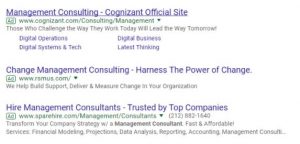
What’s in Your Website?
Google’s announcement that beginning September 1, 2015 it will block Flash ads is just the latest blow to this now obsolete technology. For several years, Adobe’s Flash movies, animation and navigation bars were prized for websites and online ads alike. It was a way to get attention and impart information in a (okay, I’ll say it) flashy way.
However, there were flaws in this technology from the start. For one thing, Google and other search engines could not “read” the text enclosed in a Flash element, making it terrible for SEO. Flash elements could slow page load to a crawl, which annoyed users. Apple never supported Flash on its mobile devices. There were also vulnerabilities that allowed hacking, which made Firefox decide to block Flash and Amazon to ban Flash ads on its platform.
Google’s latest announcement that Flash ads will be blocked on Chrome is probably the most significant change. More than 90% of animated ads use Flash, and more than 50% of us use Chrome as our default browser. (Business Insider)
Website Owners Take Note
While the ad tech companies will probably be most affected by this most recent change, anyone with a website that has Flash elements should take note.
Website technology has had to change with the times. Earlier this year, Google announced that it would no longer display websites that were not “mobile friendly” in mobile search results. Bing, Firefox and Yahoo quickly followed suit. The announcement that Flash is no longer being supported, along with its hacking vulnerabilities, is yet another nail in the coffins of many older websites.
Google has also made sweeping changes to how it ranks websites for “organic” searches, steering away from “stuffed” keywords and looking more at semantic elements. Google can now “read” content and decide whether it is relevant to searches on its site. Google also wants pages that load fast, are well organized, easy to read and use clean code. Anything that slows a page down or can be considered detrimental to a user’s experience will impact organic searches.
Bad News for Older Websites
Many companies have spent a lot of money on their websites. They may have agonized over color selection, website “look” and SEO. To realize that they will have to start over in order to compete with others in their industries for online space is a bitter pill to swallow. However, the changes in Google and other search engine algorithms, the popularity of mobile devices (more than 50% of internet searches are done on mobile phones), the decline of traditional SEO (keywords) and now the obsolescence of Flash make it imperative that every company reevaluate their web presence in order to remain competitive.
Digital & Social Articles on Business 2 Community(120)







